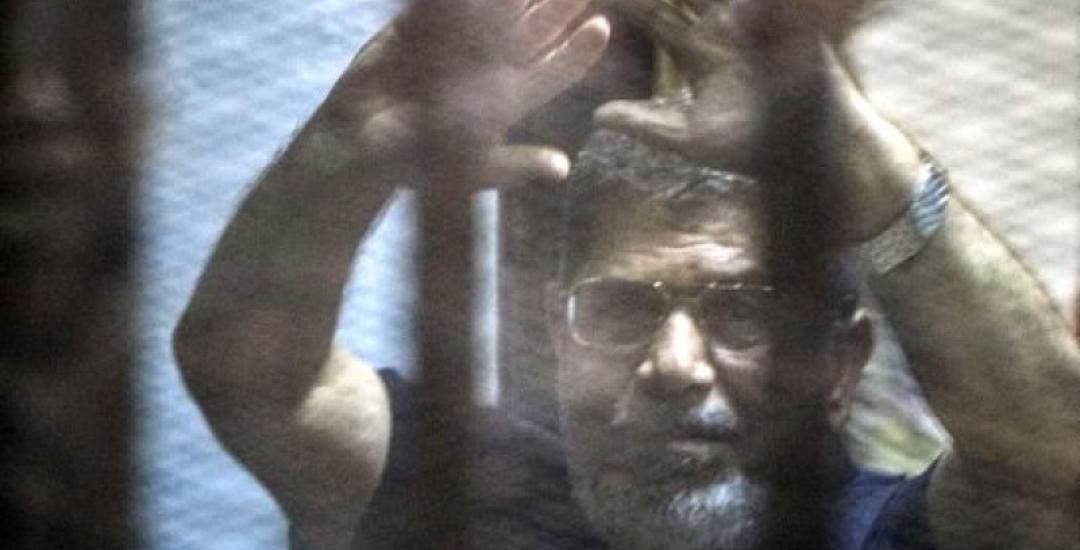
On 18 May 2015, Alkarama sent an urgent appeal to the United Nations Special Rapporteur on extrajudicial, summary or arbitrary executions (SUMX) regarding the sentencing to death of Mohamed Morsi, first democratically elected president of Egypt, together with 105 co-defendants for having escaped the Al Wadi Natrun prison during the 2011 revolution. Dr Morsi was sentenced to death despite a December 2013 Opinion by the UN Working Group on Arbitrary Detention (WGAD) finding "the deprivation of liberty of Dr. Morsi and his advisors (...) arbitrary." The Opinion followed an urgent appeal sent by Alkarama on 10 July 2013 in which Alkarama considered the arrest of Morsi and his co-defendants as a violation, not only of their rights to liberty and to security, but also of their right to fair trial procedures, and called upon the WGAD to intervene to protect them from torture and secure their release.
Morsi had already been sentenced to 20 years in prison along with other members of his staff in April 2015 in the so-called "Presidential Palace" case. This time, and despite several procedural irregularities in this new trial, the former president was sentenced to death, together with 105 other individuals, including Brotherhood Supreme Guide Mohamed Badie, Freedom and Justice Party General Secretary Mohamed Al-Beltagy, and controversial preacher Safwat Hegazy. Not only was Morsi not charged during the first days of his detention – in violation of Articles 9 and 14 of the International Covenant on Civil and Political Rights (ICCPR) ratified by Egypt in November 1989 – but his lawyer was not always present during his hearings, violating several of his fair trial rights. Additionally, Morsi was reportedly detained incommunicado in a fake civilian prison at the edge of a naval base, which in itself characterises a form of arbitrary detention.
The decision of the Cairo Criminal Court to sentence Morsi and the other 105 individuals in a mass trial will now be reviewed by Egypt's Grand Mufti – whose opinion is not legally binding – in view of the issuance of the final sentence on 2 June 2015 – a decision which should be possible to appeal. "We are extremely concerned with the turn of events in Egypt, and in particular with the recent sentencing to death of these 106 individuals, including deposed President Mohamed Morsi," declared Rachid Mesli, Legal Director at Alkarama. "By issuing such a sentence against the regime's political opponents – and in particular leaders of the Muslim Brotherhood – in complete disregard for the numerous irregularities in this trial and in spite of the international community's previous outcry regarding mass sentences, the Egyptian judiciary has again demonstrated that it is, in fact, just a tool at the service of the executive branch and the army."
In addition to the death sentence handed against them, Morsi and some of his staff members are still prosecuted under other charges, such as that of having "collaborated with the Hamas and the Hezbollah," "colluded with Qatar," or "insulted the judiciary," which could lead him to be sentenced to death for a second time, during his detention in Tora prison, a place notorious for the practice of torture within its walls.
Alkarama therefore called upon the SUMX to urgently intervene with the Egyptian authorities and call upon them not to carry out the death sentences, shall they be confirmed on 2 June, to dismiss all charges held against Morsi and to release him immediately, as requested in the WGAD Opinion.
For more information or an interview, please contact the media team at media@alkarama.org (Dir: +41 22 734 1007 Ext: 810)
